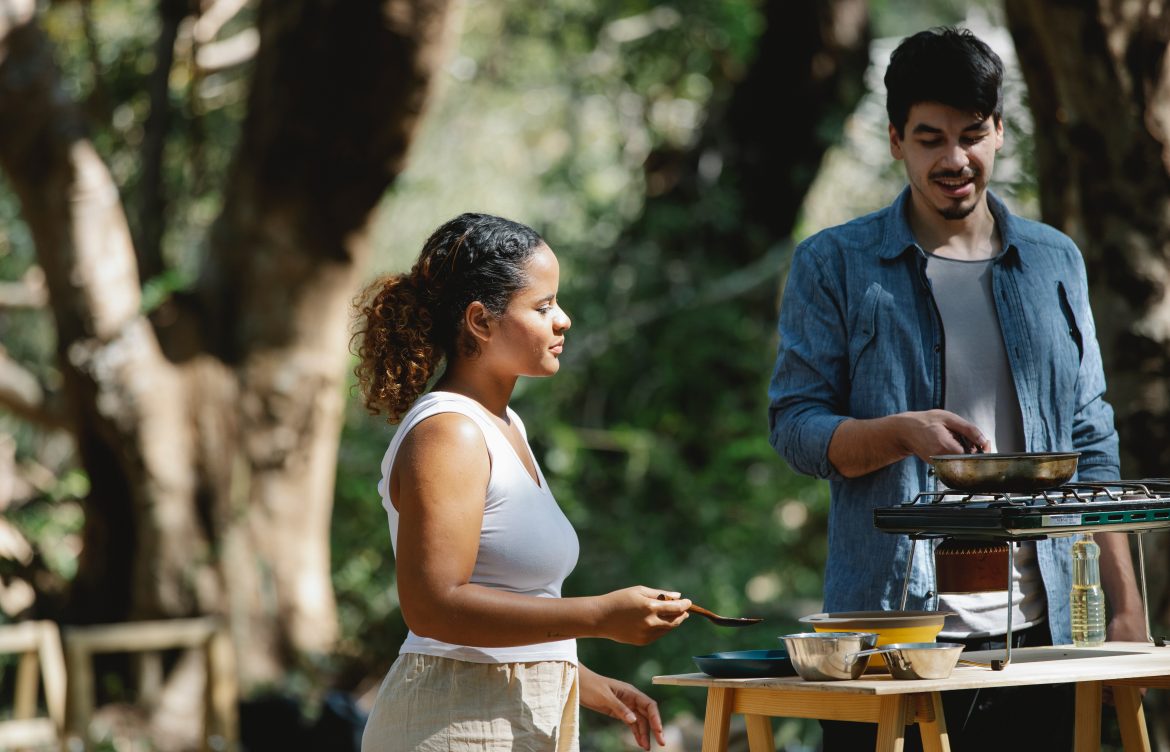
Cooking Light: A Guide to Oil-Free Culinary Delights
Introduction
Cooking without oil may seem daunting, especially in a world where oil is a common kitchen staple. However, you’d be surprised to discover that it’s not only possible but also incredibly rewarding. Whether you’re aiming for a healthier lifestyle, trying to reduce calorie intake, or simply out of cooking oil, the process can be enjoyable and delicious. In this blog, we will explore various techniques and tips on how to cook without oil while maintaining flavour and achieving perfect results. Join us on this journey to discover a world of oil-free culinary delights.
Section 1: Oil Substitutes
When it comes to cooking without oil, it’s crucial to have suitable alternatives in your culinary toolbox. Here are some of the most effective oil substitutes:
1. Broth or Stock
Vegetable, chicken, or beef broth can replace oil in sautéing and stir-frying. Simply use a small amount of broth to prevent sticking and add flavour to your dish.
2. Water or Wine
A splash of water or wine can serve as an effective substitute when deglazing pans or adding moisture to your dishes.
3. Coconut Milk
In recipes that call for coconut oil, you can use coconut milk to impart the same rich, tropical flavour. It’s especially popular in curries and Asian cuisine.
4. Nut Butters
Peanut, almond, or cashew butter can add a rich, nutty flavour to your dishes, making them an excellent alternative for oil in salad dressings and sauces.
5. Mashed Avocado
Mashed avocado can serve as a creamy replacement for butter or oil in baking recipes. It adds a unique flavour and enhances the moistness of baked goods.
Section 2: Baking Without Oil
Baking without oil can be a bit tricky, but it’s entirely possible. Here are some tips for achieving delicious, oil-free baked goods:
1. Use Applesauce
Unsweetened applesauce is a fantastic substitute for oil in recipes like muffins, quick breads, and cakes. It adds moisture and natural sweetness.
2. Greek Yogurt
Greek yogurt, with its creamy texture and slight tang, can replace oil in recipes like brownies and pancakes, maintaining moisture and tenderness.
3. Mashed Bananas
Overripe bananas can serve as a great replacement for oil, especially in recipes that pair well with the fruit’s natural sweetness, like banana bread and some muffins.
4. Pumpkin Puree
Canned or homemade pumpkin puree is perfect for adding moisture to recipes and can be a great substitute in oil-free baking.
5. Silken Tofu
Blended silken tofu can replace oil in dense, moist baked goods, like fudgy brownies and chocolate cakes.
Section 3: Sautéing and Stir-Frying Without Oil
Sautéing and stir-frying without oil require a slight shift in technique, but the results can be equally satisfying. Here’s how to do it:
1. Use a Non-Stick Pan
A non-stick pan is your best friend when cooking without oil. It helps prevent sticking and allows for easy food release.
2. Dry Sautéing
For certain recipes, such as mushrooms and spinach, you can dry sauté by using the natural moisture of the ingredients. Start by heating the pan, then add the ingredients, and stir frequently to avoid sticking.
3. Water or Broth
Instead of oil, use small amounts of water or broth to sauté or stir-fry your ingredients. Keep a close eye on the moisture level, adding more as needed to prevent sticking.
4. Steam-Sautéing
This technique involves using a small amount of water in a hot pan, then covering it to create steam, cooking the ingredients while retaining their natural flavours.
5. Stirring and Tossing
Frequent stirring and tossing are key to avoiding sticking and achieving even cooking.
Section 4: Roasting and Grilling Without Oil
Roasting and grilling without oil can be a little more challenging, but with the right methods, it’s entirely achievable:
1. Parchment Paper
Line your baking sheet or grill with parchment paper to prevent sticking while roasting or grilling. This method works well for vegetables, tofu, and even fish.
2. Vegetable Broth or Wine
To add moisture and flavour to your roasted or grilled dishes, use vegetable broth or a splash of wine. Simply brush or spray your ingredients with the liquid before cooking.
3. Use Marinades
Create flavourful marinades using herbs, spices, and citrus juices to add taste and moisture to your food. Allow your ingredients to marinate for an hour or more before roasting or grilling.
4. Non-Stick Grilling Mats
Non-stick grilling mats can be a handy tool when grilling without oil. They help prevent sticking and ensure even cooking.
5. Invest in Quality Cookware
Quality baking sheets, grilling grates, and pans can make a significant difference in preventing sticking when roasting or grilling.
Section 5: Flavors and Seasonings
Since you won’t have the inherent richness of oil in your dishes, it’s essential to focus on seasonings and flavours. Elevate your oil-free recipes with herbs, spices, and the creative use of ingredients like citrus zest, balsamic vinegar, and soy sauce. Experiment with different seasoning blends and flavour profiles to create culinary masterpieces that are rich in taste and satisfying.
Conclusion
Cooking without oil can be a healthy and rewarding endeavour that opens a world of culinary possibilities. Whether you’re looking to reduce calories, lower your fat intake, or simply try something new, the techniques and tips outlined in this guide will empower you to create flavourful, satisfying meals without the need for oil. Embrace the alternatives, explore innovative recipes, and discover the delicious journey of oil-free cooking. You’ll find that your culinary horizons expand as you explore the abundant flavours and creative techniques available to you.